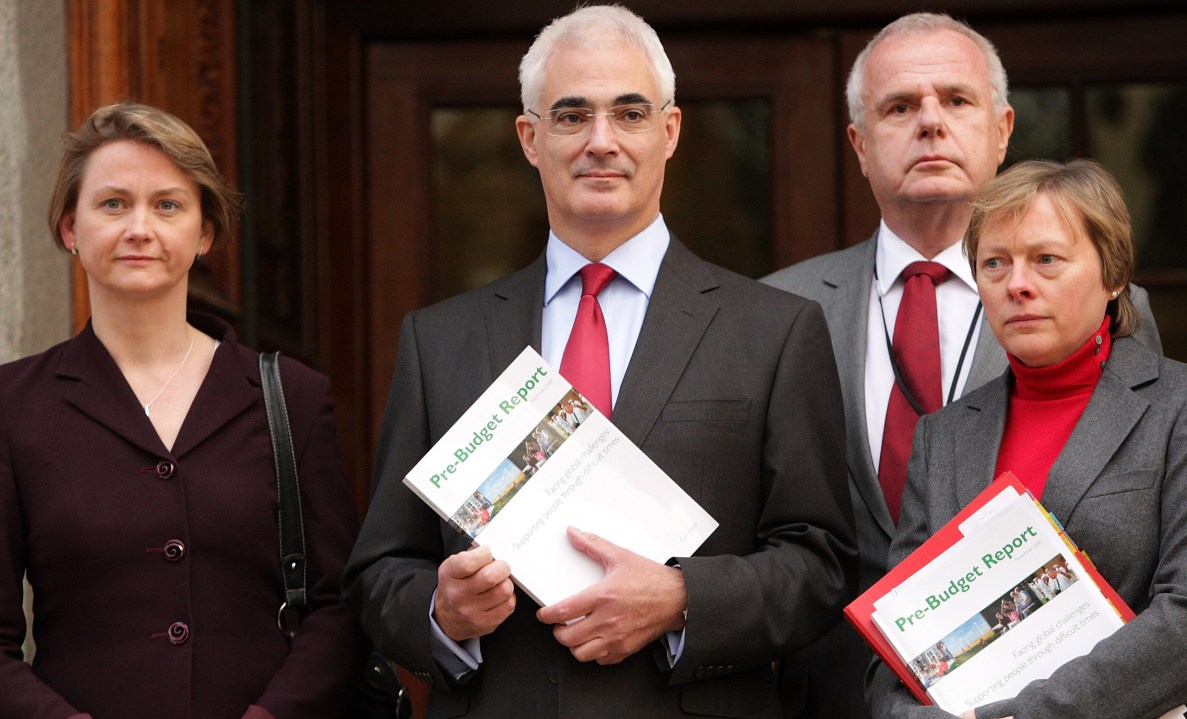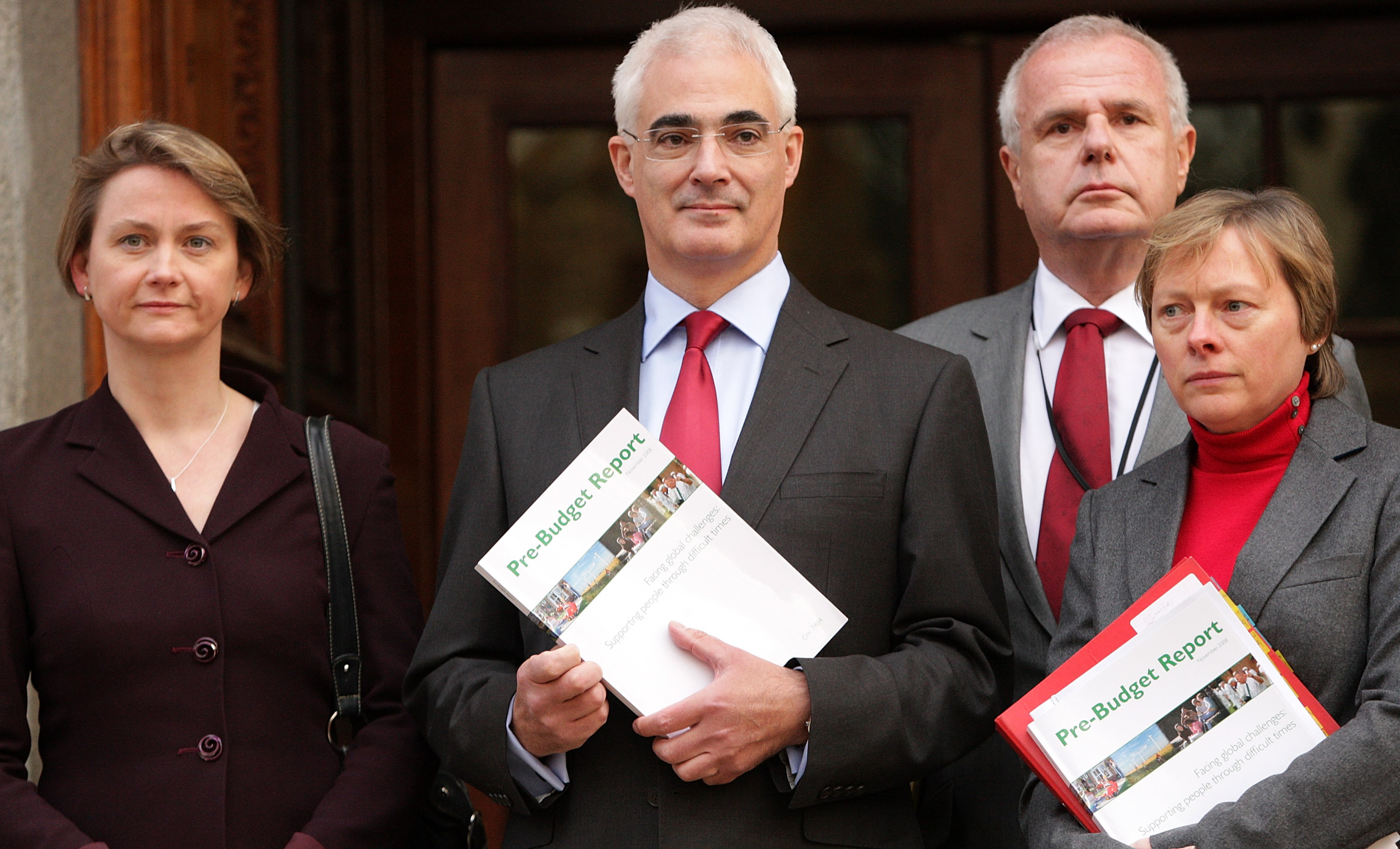 So what’s left? Bits have been falling off New Labour like body-parts off a leper. Prudence is long gone. Today, as I blogged earlier, we lost the all-important principle that wealth creation is the basis of enhanced social justice. Which leaves the famous statement of ideological eclecticism that defined Tony Blair’s premiership if not his record: What Counts is What Works.
So what’s left? Bits have been falling off New Labour like body-parts off a leper. Prudence is long gone. Today, as I blogged earlier, we lost the all-important principle that wealth creation is the basis of enhanced social justice. Which leaves the famous statement of ideological eclecticism that defined Tony Blair’s premiership if not his record: What Counts is What Works.
And I cannot see how today’s package will work. This was an overwhelmingly political PBR, as one would expect of Gordon Brown: its ideological centrepiece was the fiscal stigmatisation of the well-off and the overt declaration by Alistair Darling that, since these voters had supposedly “done best out of the growth of the last decade”, they deserved to be walloped. No mention of the revenues these individuals have provided to the Exchequer as entrepeneurs, employers and income taxpayers. Back we go to the crude socialist idea that there is a finite pie of wealth in which the prosperity of the few depends on the poverty of the many. Fourteen years after Blair became leader, New Labour’s last death rattle resounded through Westminster’s cold corridors.
Yet for all the swashbuckling “hang the rich” populism this was not a persuasive programme. As others have blogged below, the extent of the debt to which Darling and Brown have committed the nation is beyond extraordinary – matched only by the assumption, mysterious to this observer, that the economy will recover by the third quarter of next year. Strip out the symbolic goodies for pensioners, child benefit recipients, and motorists, a bit of capital spending brought forward and the temporary decrease in VAT, and this was astonishingly thin fare.
This enabled George Osborne to deliver a magnificent Commons performance and – crucially – to get debt rather than supposed Government munificence into the first line of most news bulletins. This has been the Shadow Chancellor’s private objective in the past few weeks and in this respect he succeeded handsomely. He and his advisers believe that, pushed relentlessly and without compromise, the extent of public debt can become as salient an issue as it was in the 1992 US presidential election. Last week, Osborne was subjected to huge internal pressure to shift ground on the issue of fiscal stimulus and to relax his stubborn adherence to fiscal conservatism: the Gordon Brown of 1994 would have sympathised, having come under similar pressure from colleagues all those years ago when he was Shadow Chancellor to make big spending pledges. Osborne was having none of it, and today he reaped the reward. I think this may well have been the day the Tories sealed the deal, and it proves so to be, a lot of senior Conservatives will owe Osborne a gilt-edged apology.
Before today, the Tories were on the back foot: the critique that they have no economic message was the dominant narrative, dangerously so. It has not gone away. But the greater question now is entirely practical: will the Darling Plan work? That after all, is what counts.







Comments